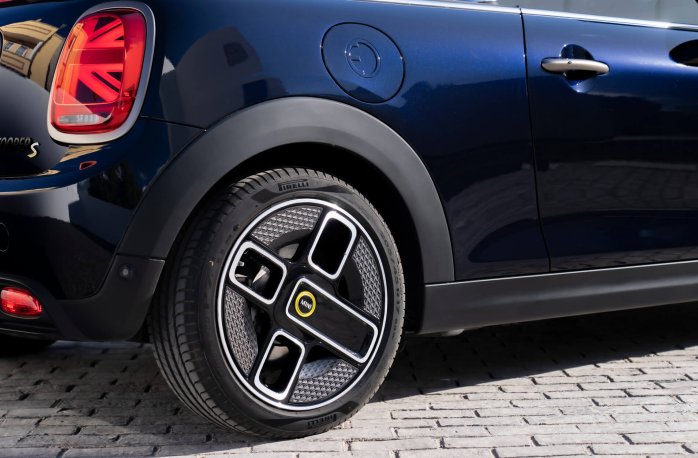“We are in a position to control every step of the value chain, from bauxite mining and alumina production to aluminum production and recycling.”


Heading towards decarbonization with Hydro
The use of low-carbon components in the automotive sector is increasingly in the spotlight. With electromobility growing, the use phase of the car is no longer the sole focus of its CO2e impact: attention has already turned to its production.
Aluminum is responsible for about 34% of CO2e emissions in vehicle manufacturing, with more than 80% of that figure coming from the supply chain. As a supplier of aluminum wheels, our customers are turning their attention to us when it comes to reducing greenhouse gas (GHG) emissions.
Target: below 4 kg CO2e
In the 2022/23 financial year, an average RONAL GROUP wheel had a product carbon footprint of 139 kg CO2e. This amounts to a full 580 kg of CO2e for a passenger car – just from the four aluminum wheels. This is a clear indication of where RONAL GROUP needs to start looking in the supply chain to reduce the ecological footprint of the wheels. Currently, the RONAL GROUP uses aluminum, which generates an average of 6.5 kg of CO2e per kilogram of material. By 2030, the goal is for this to be below 4 kg CO2e per kg. We can only achieve this goal by working with suppliers who develop their products in a forward-looking and innovative manner. One of our suppliers, Hydro, has already achieved the goal of 4 kg CO2e per kg.
An innovative alloy
Back in 2016, when we introduced our first low-carbon R60-blue aluminum wheel, Hydro was already part of the success story. They supplied us with an aluminum alloy that accounted for 4 kg CO2e/kg. The European average at the time was 8.6 kg CO2e/kg.
The low-carbon material is called Hydro REDUXA. It guarantees a maximum product carbon footprint of 4 kg CO2e per kilogram of aluminum, including all process steps (Scope 1, 2 and 3). These values are achieved by using renewable energy sources such as hydropower and highly efficient electrolysis technology at the Norwegian aluminum factories.

Control over the whole chain
Hydro REDUXA is certified in line with ISO 14064 by DNV GL and covers all carbon emissions. This includes all the steps, from bauxite mining, alumina refining, the production of aluminum in electrolysis to casting.
“We are in a position to control every step of the value chain,” says Francine Martin, Sales Director at Hydro, “from bauxite mining and alumina production to aluminum production and recycling.” As Hydro is involved in every aspect of the value chain, RONAL GROUP can rest assured that the entire process is sustainable, and that the green energy comes from its own sources.
In 2022/23, Hydro supplied all our factories in Europe and Mexico. Half of the material is already Hydro REDUXA material. So Hydro is helping us to achieve our decarbonization targets.
Demand is growing
The International Aluminium Institute (IAI) forecasts growth in demand for aluminum, rising by 70–80% by 2050. Most of the growth in demand can be met by recycling more post-consumer aluminum scrap. But the remaining growth must be covered by the emission-free production of primary aluminum. Here too, Hydro and RONAL GROUP are working together on solutions.

The transparency requirement
The traceability and transparency of Hydro’s aluminum products are provided through ASI certification based on the Performance Standard and Chain of Custody. This is an important prerequisite for RONAL GROUP to be able to meet its obligations in relation to customer requirements and statutory regulations such as the Act on Corporate Due Diligence Obligations in Supply Chain (LkSG). RONAL GROUP is also certified to ASI Performance Standard V2, Material Stewardship.
About Hydro
Hydro is an industrial company founded in 1905 and based in Norway. The company operates in the market segments of aluminum, energy, metal recycling, renewable energy and batteries. Hydro has 32000 employees spread over more than 140 locations in 40 countries.




